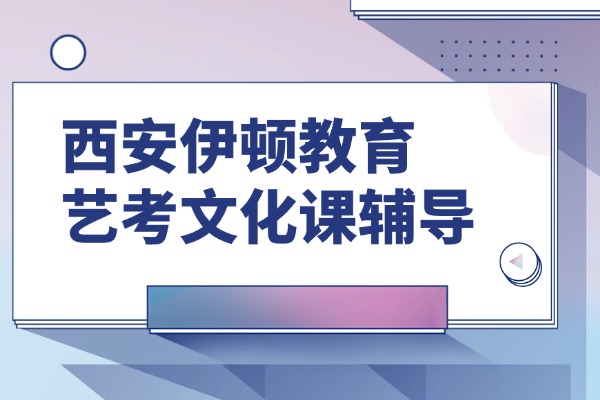模拟试题:高考英语听力训练(8.1)
宝子们宝子们,咱们高考英语听力训练题又来啦,这非常有针对性的听力练习能帮助大家熟悉高考听力节奏和难度,提升捕捉文章关键信息的能力,而且还能发现自己的薄弱环节,及时弥补 ,所以大家一定要紧跟着练习呀!

试题
第一节 (共5小题;每小题1.5分,满分7.5分)
听下面5段对话。每段对话后有一个小题,从题中所给的A、B、C三个选项中选出最佳选项。听完每段对话后,你都有10秒钟的时间来回答有关小题和阅读下一小题。每段对话仅读一遍。
1. What are the speakers probably talking about?
A. The bike price.
B. A bike race.
C. The man’s bike.
2. Why has the woman moved the boys seat?
A. He talks too much.
B. He has trouble in listening.
C. She wants to see him better.
3. When did the man get his niece’s call?
A. At 6:05.
B. At 6:00.
C. At 5:45.
4. What does the man think is most needed to succeed?
A. Effort.
B. Luck.
C. Talent.
5. Where does the conversation probably take place?
A. At home.
B. In a shop.
C. In a restaurant.
第二节(共15小题;每小题1.5分,满分22.5分)
听下面5段对话或独白。每段对话或独白后有几个小题,从题中所给的A、B、C三个选项中选出最佳选项。听每段对话或独白前,你将有时间阅读各个小题,每小题5秒钟;听完后,各小题将给出5秒钟的作答时间。每段对话或独白读两遍。
听下面一段材料,回答第6、7题。
6. What is the man going to do this summer?
A. Work at a hotel.
B. Repair his house.
C. Teach a course.
7. How will the man use the money?
A. To hire a gardener.
B. To buy some flowers.
C. To buy books.
听下面一段材料,回答第8~10题。
8. What is the woman recommending to the man?
A. A book.
B. A club.
C. A course.
9. What is the woman reading now?
A. The Beautiful Mind.
B. The Kite Runner.
C. The Great Gatsby.
10. How much time does the man have to read the book?
A. About two weeks.
B. About three weeks.
C. About one month.
听下面一段材料,回答第11~13题。
11. How did the man learn about the apartment?
A. In the newspaper.
B. From his friend.
C. Through the Internet.
12. What is covered in the rent?
A. Gas.
B. Electricity.
C. Water.
13. When can the man move in?
A. On Thursday.
B. On Friday.
C. On Saturday.
听下面一段材料,回答第14~16题。
14. Why did the woman fail to catch the bus?
A. She was late.
B. The bus left earlier than usual.
C. She wanted to walk home.
15. What is the man worried about?
A. The womans safety.
B. The public transportation.
C. The dangerous neighborhood.
16. What does the woman decide to do in the end?
A. Buy a car.
B. Call the newspaper.
C. Complain to the local government.
听下面一段材料,回答第17~20题。
17. What is the speaker mainly talking about?
A. Cooling fans.
B. Air conditioning.
C. Room design.
18. Which country might have invented the first cooling device?
A. Egypt.
B. Rome.
C. China.
19. Which cooling method has the longest history?
A. Wet plants.
B. Cold water.
C. Hand fans.
20. Where is the passage most probably taken from?
A. A radio programme.
B. A culture magazine.
C. A history book.
听力原文
Text 1
W: Wow! Your dad did a great job! He made the oldest bike in town look new. People may think your bike is more expensive than mine.
M: You know it goes faster than your bike now.
W: I don’t think so. Let’s race and see.
Text 2
M: Mrs.Sophie? Why has my seat been moved to the front row? Everyone else is sitting in their original seats.
W: If you choose to talk in class instead of listening, your seat will be moved closer to me so I can see you better.
Text 3
M: Maria, I need to meet my niece at the railway station at 6:20. She called me a quarter ago. I just had an emergency meeting.
W: Oh, it’s 6:00 now. 20 minute to go.
M: That is enough.
Text 4
W: Robert, which do you think you need more of, luck, talent or effort to succeed in the arts?
M: In my opinion, you need the opportunity to succeed and not everyone gets the right opportunity even if they’re really talented and devoted.
Text 5
M: Now you can begin taking the plates to the customers. Well, don’t carry too many plates. You may drop them.
W: Oh, I won’t. I’ve never dropped plates in my life.
M: You can’t be too careful.
W: Well, I’ll try my best.
Text 6
M: Guess what I’ll be doing this summer?
W: What?
M: I’m going to work at the Churchill Hotel.
W: What exactly will you be doing there?
M: Let’s see. I’ll be doing some small repairs inside and outside the hotel. I’ll be cutting grass and taking care of the flowers.
W: Sounds interesting. What’s the pay?
M: Well, uh...about twenty dollars per hour, five hours a day, and Sunday free.
W: That’s good money. What are you going to do with it?
M: I’ll pay for the textbooks for next semester.
Text 7
W: Hey, John? Can I talk to you for a minute?
M: Sure.What’s up?
W: I want to let you know about a book club I joined months ago. I know you do a lot of reading, so I thought you might want to come with me next month.
M: Oh! That sounds like fun.When does the group meet?
W: Usually the last Saturday of the month, at 7:30 in the evening. Is that too late for you?
M: No, I think that’s okay. What do you talk about in the group?
W: Well. Every month we choose a new book, and then during the next meeting we discuss it.
M: What books have you read?
W: Quite a lot. Recently we have read The Beautiful Mind and The Great Gatsby. Now we are reading The Kite Runner.
M: The Kite Runner? I’ve heard that’s a good book. What’s it about?
W: It’s about two boys who grow up in Afghanistan in the 1980s and how their friendship shapes the rest of their lives.
M: That sounds interesting. I’d love to come.
W: Great! The next meeting will be held in half a month, so you still have time to read the book.
Text 8
M: Good afternoon, madam. My friend saw the information in the newspaper that you might have a spare apartment and told me on Friday.
W: Yes, I have a spare apartment for rent.
M: Would it be OK to look at it now?
W: OK. Come in, please.
M: Emm... This apartment looks nice and quite new. The living room is really large.
W: It’s forty square meters.
M: How much should I pay?
W: $800 a month.
M: What are included?
W: Only gas is included. You have to pay for the electricity and water.
M: Er, can you cut down a little? I’ve searched a lot on the Internet, and there wasn’t so much high rent.
W: As you can see, the apartment has recently been redecorated and completely furnished.
M: Well, that’s it. When can I move in?
W: Let me see. Today is Wednesday. In three days if you like.
M: That’s great.
Text 9
M: Why did you get home so late, Enya? I was worried sick!
W: I had everything timed perfectly. I sat in the coffee shop, waiting for Bus 35. It is supposed to leave at 4:45 sharp. I take it every day at that time because it arrives at the Waterloo Station just in time for me to catch Bus 15.
M: And you lost track of time, didn’t you?
W: No, Ken, not this time. I was at the bus stop on time, and I was picking up my bag and getting to my feet at 4:35. I was two feet from the bus when it suddenly left!
M: Ten minutes early?
W: Yes. So, I had to wait thirty minutes for the next bus. By then, there were no more buses leaving from Waterloo.
M: How did you get here, then?
W: I walked.Can you imagine—me, a young woman, walking in the dark for an hour by alone?
M: And in this neighborhood! Next time, please call me. That was so dangerous.
W: I know. I’m lucky to be alive. What’s wrong with the public transportation in this city? Dont they care about people who can’t afford cars?
M: We should write a letter to our local officials.
W: And the newspaper!
Text 10
The desire to stay cool is, of course, nothing new.
The ancient Egyptians and Romans employed various techniques to cool down their buildings from the outside heat. Some people have even claimed that the first air conditioning device was invented in ancient Egypt. The ancient Egyptians would hang wet plants outside their windows, and when the air came into the house, it would be cooled by the cool water drops on the plants.
The Romans understood that if they could bring cold water under their houses, then the temperature inside would fall. And if we really stretch the meaning of the phrase “air conditioning”, then hand fans have been used since the very beginning of the history. People realized that they could move air by waving something and it would cool them down for a while.
The Chinese inventor Ding Huan went a step further in the second century and invented a fan that could go around, similar to fans we might see today, although it was powered by servants.
That’s all for today. Please stay tuned for more updates.
参考答案
1~5 CACBC 6~10 ACBBA
11~15 BACBA 16~20 CBACA
西安哪家辅导机构机构好?西安伊顿教育
西安伊顿教育开设了各种辅导班类型,如大班课、小班课、一对一,根据不同学生的不同需求,可以选择合适的班级。
西安伊顿教育辅导班的老师有多年的教学经验,教学内容设计的合理科学,而且会用有趣生动的方式来给学生上课,引起学生的学习兴趣,帮助学生打坚实的基础。
如果你也正在为选择一家好的辅导机构发愁,那就可以选择西安伊顿教育,让专业的老师用专业的方法来帮助学生在学习上突飞猛进。
西安伊顿教育咨询热线:
往期回顾:模拟试题:高考英语听力训练(8.1)
- 热门课程
- 热门资讯
- 热门资料
- 热门福利
-
 西安秦学伊顿的艺考文化课怎么样?艺考文化课提升指南艺考结束后,很多同学文化课基础弱、复习时间短,抓不住得分点,偏科问题突出,自学没方向,家长也跟着担心。不少西安的艺考生和家长都在问,西安秦学伊顿的艺考文化课到底怎么样,有没有靠谱的提升方法。今天,小编就跟大家好好聊聊! 西安秦学伊顿的艺考文化课怎么样? 西安秦学伊顿的艺考文化课总的来说还是非
西安秦学伊顿的艺考文化课怎么样?艺考文化课提升指南艺考结束后,很多同学文化课基础弱、复习时间短,抓不住得分点,偏科问题突出,自学没方向,家长也跟着担心。不少西安的艺考生和家长都在问,西安秦学伊顿的艺考文化课到底怎么样,有没有靠谱的提升方法。今天,小编就跟大家好好聊聊! 西安秦学伊顿的艺考文化课怎么样? 西安秦学伊顿的艺考文化课总的来说还是非 -
 西安伊顿教育有艺考文化课辅导吗?艺考生文化课复习全攻略艺考结束后,很多艺考生文化课基础薄弱、知识点落下太多,复习时间紧张,抓不住得分重点,自学也没有清晰思路,成绩提升慢,家长也跟着焦虑。不少西安的艺考生和家长都想知道,西安伊顿教育有没有艺考文化课辅导,也急需一份实用的艺考生文化课复习全攻略。接下来小编就为大家详细解答吧! 西安伊顿教育有艺考文化课
西安伊顿教育有艺考文化课辅导吗?艺考生文化课复习全攻略艺考结束后,很多艺考生文化课基础薄弱、知识点落下太多,复习时间紧张,抓不住得分重点,自学也没有清晰思路,成绩提升慢,家长也跟着焦虑。不少西安的艺考生和家长都想知道,西安伊顿教育有没有艺考文化课辅导,也急需一份实用的艺考生文化课复习全攻略。接下来小编就为大家详细解答吧! 西安伊顿教育有艺考文化课 -
 西安伊顿高考全日制课程怎么样?高考冲刺技巧高考冲刺阶段,很多学生复习没规划,抓不住考试重点,基础不扎实、偏科问题明显,自学效率低,做题没方法,成绩迟迟提不上去,家长也跟着着急。不少西安的高三学生和家长都想了解,西安伊顿高考全日制课程到底怎么样,今天小编就给大家来分享一下,以及高考冲刺的几个技巧,供大家参考! 西安伊顿高考全日制课程怎么
西安伊顿高考全日制课程怎么样?高考冲刺技巧高考冲刺阶段,很多学生复习没规划,抓不住考试重点,基础不扎实、偏科问题明显,自学效率低,做题没方法,成绩迟迟提不上去,家长也跟着着急。不少西安的高三学生和家长都想了解,西安伊顿高考全日制课程到底怎么样,今天小编就给大家来分享一下,以及高考冲刺的几个技巧,供大家参考! 西安伊顿高考全日制课程怎么 -
 西安十大中高考补习学校!中高考临近,很多孩子基础薄弱、复习没方向,成绩迟迟提不上来,家长想给孩子选靠谱的补习学校,却面对众多机构无从下手,还担心师资一般、管理松散、提分没效果。不少西安家长都迫切想知道,本地口碑好、实力强的中高考补习学校有哪些。今天就整理出西安十大中高考补习学校,帮大家清晰对比,选对机构助力孩子高效备考
西安十大中高考补习学校!中高考临近,很多孩子基础薄弱、复习没方向,成绩迟迟提不上来,家长想给孩子选靠谱的补习学校,却面对众多机构无从下手,还担心师资一般、管理松散、提分没效果。不少西安家长都迫切想知道,本地口碑好、实力强的中高考补习学校有哪些。今天就整理出西安十大中高考补习学校,帮大家清晰对比,选对机构助力孩子高效备考
-
 2023高考作文热点素材 ,《盛唐密盒》作文范文2023高考作文热点素材 ,《盛唐密盒》作文范文!最近有两个“人物”风靡全网。他们谈吐不凡,一位叫“房玄龄”,另一位叫“杜如晦”。这是继“不倒翁小姐姐”后,西安文旅打造的又一爆款节目《盛唐密盒》。为方便各位学生搜集素材,小编老师为大家整理了有关《盛唐密盒》作文范文,各位学生了解一下! 题目
2023高考作文热点素材 ,《盛唐密盒》作文范文2023高考作文热点素材 ,《盛唐密盒》作文范文!最近有两个“人物”风靡全网。他们谈吐不凡,一位叫“房玄龄”,另一位叫“杜如晦”。这是继“不倒翁小姐姐”后,西安文旅打造的又一爆款节目《盛唐密盒》。为方便各位学生搜集素材,小编老师为大家整理了有关《盛唐密盒》作文范文,各位学生了解一下! 题目 -
 高考作文素材,《隐入尘烟》金句、时评、作文题《隐入尘烟》豆瓣评分8.5分,今年国产片中最高分,年内应该很难有出其右者。影片讲述了在西北农村,一对底层夫妇艰辛而温馨的生命旅程,他们用简单的相守和朴拙的告白,印证彼此的心意,演绎别样的浪漫与温情。下面小编老师为大家整理了《隐入尘烟》金句、时评、作文题,大家参考一下! 作文标题 如果你写一篇
高考作文素材,《隐入尘烟》金句、时评、作文题《隐入尘烟》豆瓣评分8.5分,今年国产片中最高分,年内应该很难有出其右者。影片讲述了在西北农村,一对底层夫妇艰辛而温馨的生命旅程,他们用简单的相守和朴拙的告白,印证彼此的心意,演绎别样的浪漫与温情。下面小编老师为大家整理了《隐入尘烟》金句、时评、作文题,大家参考一下! 作文标题 如果你写一篇 -
 初中学生和高中学生学习有什么差异?各位学生现在很快就要到九月,又会有一大批的学生将要步入高中。最近不少的学生问老师,初中学生和高中学生学习有什么差异?初中的学习不管是在学习方法还是在思维方式上都有差别。为方便各位学生能够更好的融入高中学习,小编老师为大家整理了初中学生和高中学生学习的相关差异,大家了解一下! 初中学生和高中学生
初中学生和高中学生学习有什么差异?各位学生现在很快就要到九月,又会有一大批的学生将要步入高中。最近不少的学生问老师,初中学生和高中学生学习有什么差异?初中的学习不管是在学习方法还是在思维方式上都有差别。为方便各位学生能够更好的融入高中学习,小编老师为大家整理了初中学生和高中学生学习的相关差异,大家了解一下! 初中学生和高中学生 -
 高中数学为什么比较难?各位学生在高中学习的这几门课程中大家觉得哪一科比较难呢?很多学生都反应数学比较难学,想知道高中数学难在哪里。为方便各位学生了解,小编老师为大家整理了有关新高考数学的相关信息,大家可以了解一下!更多有关学习方面的问题大家也可以咨询在线老师! 高中数学为什么比较难? 初中数学知识少、浅、难度容易
高中数学为什么比较难?各位学生在高中学习的这几门课程中大家觉得哪一科比较难呢?很多学生都反应数学比较难学,想知道高中数学难在哪里。为方便各位学生了解,小编老师为大家整理了有关新高考数学的相关信息,大家可以了解一下!更多有关学习方面的问题大家也可以咨询在线老师! 高中数学为什么比较难? 初中数学知识少、浅、难度容易


















 All right reserved
All right reserved
